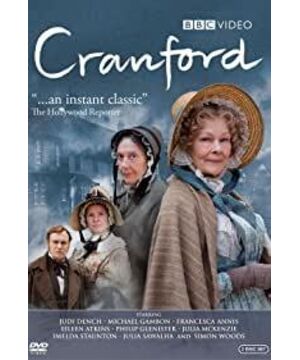Text / Manga
During this period, I didn't want to watch modern dramas that were very close to life, and those entangled contradictions made it annoying to watch. When you see the beginning, you know how it will end. I already know what real life looks like, whether it is beautiful or cruel, I just want to put my thinking in another place that seems to be completely irrelevant to my own life, so I don't know why I want to watch British dramas, just Jane Austen's description of her Victorian British drama is not necessarily written by her, it is what the English countryside looked like at that time, with castles, small towns, gardens, forests, old-fashioned institutions, and elegant. etiquette. In that era, people seemed to live happily together, girls were thinking about how to get married, men were responsible for starting a business or raising a family or inheriting, and there were exciting social activities everywhere, trying to find ways to play, and parents who were short Lively discussions and discussions on music and art are everywhere. In short, it seems that behind the beautiful rural scenery, there is a steamy ordinary life that is different from the tranquility of the environment.
The small town of Cranford is one such place. Once a new settler arrives, everyone is very curious, and in a very short time, they inquired about the detailed information, such as occupation, whether they were married, and about the background. In short, they quickly made a value judgment in their hearts.
A single handsome doctor is causing a stir among a group of women in this small town, and the old girls in the town are starting to get excited. In fact, the doctor fell in love with a relatively young and lovely girl in the town at a glance, but considering his own financial situation, he did not propose marriage explicitly, and just took the opportunity of various parties to be with this girl.
But as long as there is no marriage contract, everyone can do it, right? Coupled with a prank by a classmate of the doctor, he wrote Valentine's Day cards to many female residents of the town. So one of the old girls thought it was the proof of the doctor's courtship. There were many little 99s in their hearts. Under the brainwashing of the same older single sister, they started to flirt when the doctor appeared. It didn't take it to heart. There is also the landlord's widow, who can be a doctor's mother at the age The token of love, they themselves began to show it without explanation. When the doctor confessed to the girl he liked at a party, the old girl and the widow were shocked, and they felt that their lover had changed his mind and made a scene. The doctor was also inexplicably incomprehensible, and his name was swept away in an instant.
I was listening to a philosophy course taught by Professor Xu Yingjin of Fudan University recently, and I found it very interesting, so I wanted to use some of his knowledge about philosophical arguments to analyze why some people fall into wrong inferences so easily.
Whether the argument is valid or not can be analyzed from three levels. The reasoning mentioned by Professor Xu is logical, semantic and empirical. The logic is easy to understand. For example, a doctor is a doctor in a small town, and a doctor is very popular in a small town, so the introduction of a doctor is very popular in the small town. This does not require semantic analysis, nor does it need to be judged by experience, and the latter conclusion can be drawn directly from the first two conditions.
Then there is the semantics. Why is this particularly interesting? If the semantics is unclear and the content is ambiguous, there will be problems in understanding. For example, this old girl did receive a card on Valentine's Day. But it was just an ordinary card, and there was no explicit content of love on this card, but because it was a Valentine's Day card, she thought it was a clear courtship. Her reasoning goes like this: I get a card on Valentine's Day, and Valentine's Day sends cards between lovers, so I'm adored by the person who sent the card. She didn't think that it might be that non-lovers would also send cards on Valentine's Day, so there was no necessary relationship between receiving a card and a lover, so she was hinted by herself and her sister, and felt that the doctor and her There has been an emotional contract between them. When I saw this passage, I also remembered the American movie "Actually He Doesn't Love You That Much", in which there are all kinds of girls who have fallen into self-moving, all kinds of reasoning about whether those men love them, and finally they come to the conclusion The way they love themselves is this and that. Of course, this kind of argument cannot stand scrutiny at all, but many people caught in it will use some language and behavior with vague semantics to numb themselves to make inferences about what they want.
Finally, there is the principle of experience, which means that even if there is no problem with the logic, the semantics may not be ambiguous, but according to experience, it is impossible. The doctor gave the widow landlord's gloves and dresser at random. A group of old aunts insisted that the dresser is a token of love. Since the doctor gave you a token of love, it means that he wants to make a marriage contract with you. I watched a group of aunts dye the gray-haired widow's hair to make her look younger. The widow was also tormented by them in a panic. I felt sad and funny at the time. From my own experience and cognition, one younger than her Will a 20-year-old single young doctor see her? Why? Just because she is his landlord and takes care of his food and daily life? There is no eye contact, no verbal cues, just a dresser, and they start thinking about it. This self-directed and self-acted play is really enough.
Therefore, love is naturally a perceptual thing, but whether it is love can indeed be proved in a logical and rational way. Of course, some people have no problems with the logical reasoning process, but their understanding of the conditions is deviated, and the result of the inference will be wrong.
Classical British drama, there is another good thing is that love is always more steadfast in it. It is said that Miss Mathilde, thirty years later, her old lover found her, and she still loves her affectionately, in order to prepare all kinds of worthy conditions. Just when everyone thought that old age love was finally complete, the old man died unexpectedly due to physical reasons, so everything was empty again. And the girl across from her house, who refused to marry her beloved three times in order to protect her relatives, but the man waited for her in place until she finally realized that her dedication to her family could be finished. Even when the maid and the coachman fell in love, they didn't give up, but they got married and became pregnant after sneaking, without adding miserable unmarried mothers and so on.
Of course, although there are almost no secrets in the small town inside, and there will always be all kinds of gossip, the most touching thing is of course the warmth between people. When the neighbors need help, they all do their best, whether it's assembling candlelight for surgery, or trying to help Miss Mathilde after her investment fails, or Miss Smith discovering that the doctor has been misunderstood. Later, I lobbied the relevant parties to clarify the misunderstanding, and there was a poor little boy who was helped by the housekeeper of the big manor and selflessly funded education, etc., all of which made people see hope. It is this comfort that makes such customs more than 100 years ago still popular today. Because no matter what era, warmth, love and hope have always been the best things that people think about in their hearts.
View more about Cranford reviews











